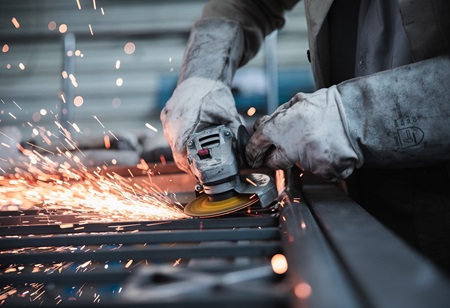
China being responsible for about 28% of the total manufacturing output worldwide makes the Indian manufacturers face a very tough competition in the global market. Indian manufacturing companies need to focus on the innovation, optimize their production processes, and also invest in technological advancements, including automation and also digitization, to tackle this problem. Besides, developing strategic partnerships, improving the product quality and complying with the stringent regulatory framework will greatly improve the competitiveness. Adopting the sustainability principles and utilizing India's talented workforce can further distinguish the Indian manufacturers from their Chinese competitors. Integrating multi-dimensional approach as well as tapping into the inherent strengths, Indian manufacturers can successfully overcome the challenge of the stiff competition from the China.
Although there are numerous areas of improvement for Indian manufacturers, there are three in particular that they must focus on.
Indian manufacturers can outperform the Chinese competition much more if they innovate and also make technological advancements. Through research and development, they can generate a lot of new products and also processes which are in line with the changing market needs. Employment of advanced technologies such as the automation, artificial intelligence and also digitalization will significantly increase the efficiency, reduce the costs and also improve the quality. This technology revolution enables the Indian manufacturers to create their own competitive advantage like shorter production cycles and also customization options. With continuous innovation and technology integration, Indian producers can create a unique space in the market, attracting those customers seeking for the latest solutions and also developing an enduring competitiveness.
“Indian start-up innovations are reshaping the industrial machinery sector, offering transformative solutions like greenhouse gas monitoring, 3D printing, Nanotechnology and swappable batteries for electric vehicles. This tech-driven dynamism emphasizes efficiency, sustainability, and operational excellence,” - Sandeep Maity, MD at Linak India.
Indian company Bharat Forge illustrates how many innovations and technological adoption can improve the competitive advantage in relation to the Chinese counterparts. Through the investments in advanced manufacturing technologies like automation and robotics, Bharat Forge simplified the production processes, also minimized the lead times and also ensured superior product quality. These improvements opened up a worldwide market for the company, leading to contracts with the various international car giants thus competing with the Chinese manufacturers. The achievements of Bharat Forge act as an example of how the Indian companies can compete with the Chinese companies by means of innovation and also technology.
The Indian producers can beat the Chinese competition by focusing on the quality assurance. Foremost, strong quality control systems guarantee unfailing quality, creating customer loyalty. Not only does adherence to international standards make products more credible but also it gives access to global markets. Applying TQM strategies will lead to the optimization of the processes and eliminate defects which will improve the overall performance. Also, the creation of an innovative culture promotes the development of distinctive products that are competitive in the market. With quality and compliance as their focus, Indian manufacturers can create a niche for themselves, competing fairly with China and establishing a lasting position in the global market.
An emblematic illustration of the Indian producers crushing the Chinese competition through quality assurance and compliance is found in the pharmaceutical industry. Companies like Sun Pharmaceutical Industries have become globally reputed by strictly complying with the stringent quality standards set by regulatory bodies such as FDA and WHO. Through significant investments in research and development as well as upholding high manufacturing standards, Sun Pharma has earned a name for itself in manufacturing safe and effective medications. Such commitment to quality has not only allowed them to better their Chinese competitors but also to set up a strong international presence.
Indian manufacturers can outshine the Chinese competitors by turning to diversification and strategic alliances. Mixing of products enables them to serve a larger market range and hence reduces dependence on one particular sector. Collaboration with local and international partners improves technology access, distribution networks and resources. The Tata Group has leveraged strategic partnerships to become a force to be reckoned with in many industries, including automobiles and steel. Alliance building of that sort drives innovation and operational efficiency bringing up competitiveness. Through portfolio diversification and forging strategic alliances, Indian manufacturers can counter the Chinese threat thereby being seen as flexible players in the global market.
An example of the same is Tata Group. Tata Steel, being under pressure from the Chinese steel makers, widened its portfolio of products by acquiring the firms like Corus Group (now Tata Steel Europe) and also formed international strategic alliances. The diversification strategy and also the strategic alliances employed by Tata Group helped it to counter the effects of Chinese competition by opening up to new markets, leveraging on the technology benefits, and improving overall competitiveness across the sectors hence assuring growth and resilience.
In a global manufacturing industry under constant change, Indian Manufacturers will prove to be strong opponents to Chinese manufacturers. Through the use of a mix of innovation, technological advancements, and strategic partnerships they are redefining their approach to international competition. Embracing automation and Industry 4.0 practices, coupled with research and development investments, guarantees product distinction and quality. By developing infrastructure and logistics systems, supply chain robustness is increased which ensures timely delivery. Both domestic and international strategic partnerships provide ways to new markets and resources. An aggressive attitude adopted by Indian manufacturers puts them on par to compete against Chinese supremacy in the global market.
We use cookies to ensure you get the best experience on our website. Read more...